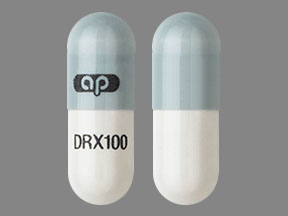
Northera Coupons & Savings Card – Discount Prices from $69.48
Brand for: Droxidopa
My prescription
Edit
100MG, Droxidopa (90 Capsules)
Select pharmacy

CVS
$2543.21
COUPON PRICE
Walgreens
$69.48
COUPON PRICE
Albertsons
$80.07
COUPON PRICE
Walmart
$103.65
COUPON PRICENorthera savings card
Show this card to your pharmacist
Walgreens
$69.48
BIN
ID
PCN
GRP
019876
LH6044588C
CHIPPO
LHX
Powered by
Related DDCIs prescriptions
Northera (Droxidopa) dosage forms
Dosage Quantity Price from Per unit 100MG 90 Capsules $69.48 $0.77 200MG 90 Capsules $139.50 $1.55 300MG 90 Capsules $201.60 $2.24
| Dosage | Quantity | Price from | Per unit |
|---|---|---|---|
| 100MG | 90 Capsules | $69.48 | $0.77 |
| 200MG | 90 Capsules | $139.50 | $1.55 |
| 300MG | 90 Capsules | $201.60 | $2.24 |
What is NORTHERA prescribed for?
Northera is prescribed for the treatment of orthostatic dizziness, lightheadedness, or the feeling that one is about to black out in adult patients with symptomatic neurogenic orthostatic hypotension (nOH) caused by primary autonomic failure, dopamine beta-hydroxylase deficiency, and non-diabetic autonomic neuropathy.
What is the drug droxidopa used for?
Droxidopa is used to treat orthostatic hypotension, a condition characterized by a significant drop in blood pressure when standing up, which can lead to dizziness or lightheadedness. It is often prescribed for individuals with conditions such as Parkinson's disease, multiple system atrophy, or pure autonomic failure.
What is the purpose of NORTHERA?
Northera is used to treat orthostatic dizziness, lightheadedness, or the feeling that one might black out in adults with conditions such as neurogenic orthostatic hypotension (NOH) due to primary autonomic failure, dopamine beta-hydroxylase deficiency, and non-diabetic autonomic neuropathy. It helps to improve the ability to stand and perform daily activities by increasing blood pressure.
Is droxidopa a hazardous drug?
Droxidopa is not classified as a hazardous drug. It is a medication used to treat orthostatic hypotension. However, like any medication, it should be used under the guidance of a healthcare professional, and patients should be aware of potential side effects and interactions.
What is the generic for Northera?
The generic name for Northera is droxidopa.
